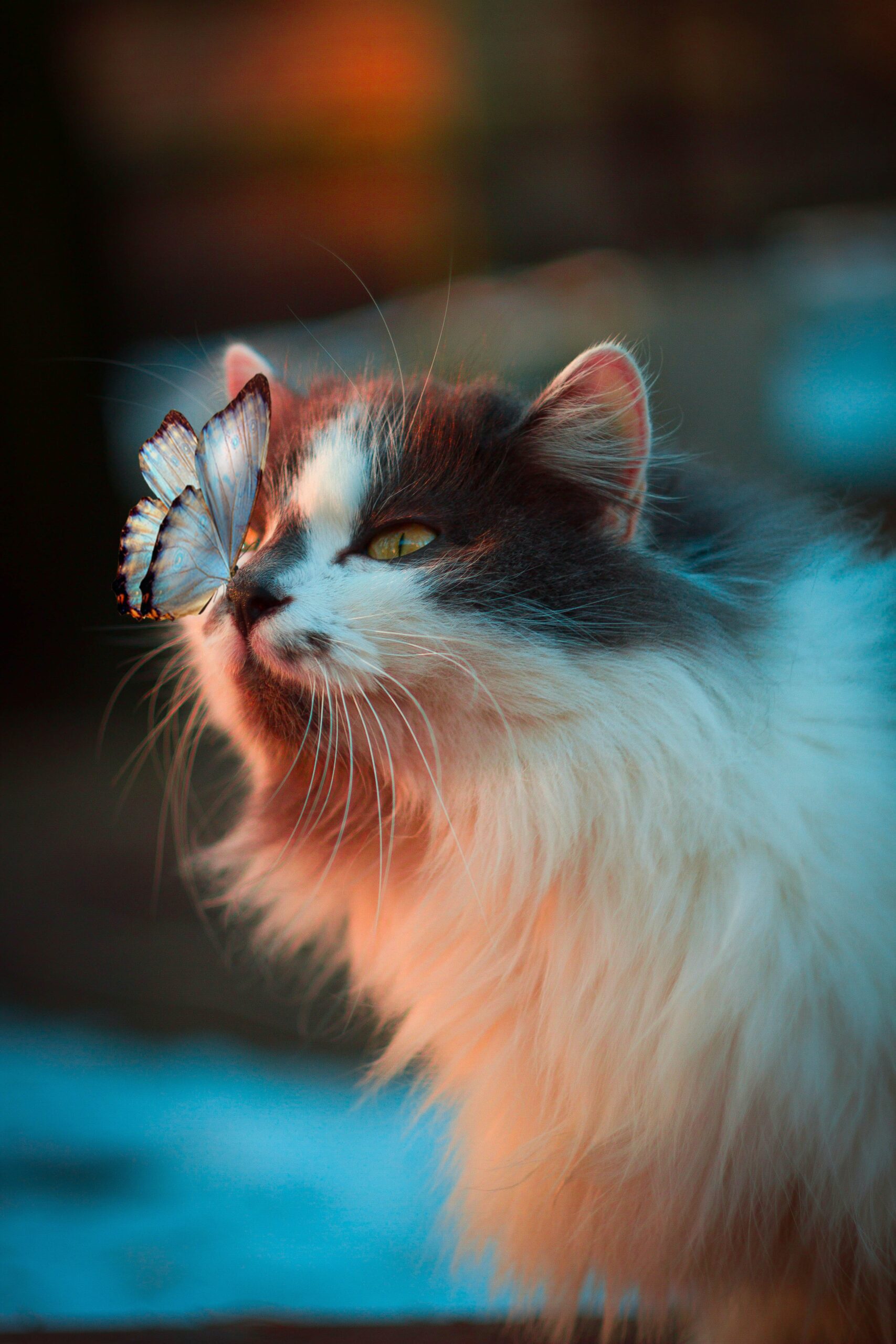If you’ve ever looked at your furry feline companion munching on their crunchy kibble and wondered, “Can cats eat bananas?” then you’re in for a purr-fect article. We all know that cats can be quite picky when it comes to their dietary preferences, so it’s understandable to have questions about what your cat can and cannot eat. In this article, we’ll explore the curious case of cats and bananas, uncovering whether this tropical fruit is a safe and healthy treat for your feline friend. So, hold on to your whiskers and let’s find out if our furry buddies can join us in enjoying this popular fruit.

This image is property of images.unsplash.com.
Health Benefits of Bananas for Cats
Good Source of Vitamins and Minerals
Bananas are a delicious and nutritious fruit that can offer numerous health benefits for cats. One of the main advantages is that they are a good source of vitamins and minerals. Bananas contain essential nutrients such as vitamin C, vitamin B6, potassium, and dietary fiber, which can contribute to your cat’s overall well-being. Vitamin C is known to boost the immune system, while vitamin B6 supports brain function. Potassium helps to maintain healthy blood pressure levels, and dietary fiber aids in digestion.
Improves Digestion
Feeding your feline friend a banana can also help improve their digestion. Cats naturally have sensitive digestive systems, and providing them with foods that aid in digestion is essential. Bananas contain dietary fiber, which can regulate bowel movements and prevent constipation. The fiber in bananas can also help with the absorption of nutrients and promote a healthy gut.
Boosts Immune System
Another significant health benefit of bananas for cats is their ability to boost the immune system. Bananas are rich in vitamin C, which is an important antioxidant that helps to strengthen the immune system and protect the body against various illnesses and diseases. By including bananas in your cat’s diet, you can help support their immune system and keep them healthy and strong.
Potential Risks of Feeding Cats Bananas
Allergic Reactions
While bananas can be a healthy treat for most cats, it’s important to be aware of potential allergic reactions. Just like humans, cats can have allergies to certain foods, and bananas are no exception. If your cat has never had a banana before, it’s recommended to introduce it in small amounts and observe their reaction. Signs of an allergic reaction may include itching, swelling, difficulty breathing, or gastrointestinal upset. If you notice any of these symptoms, it’s best to consult your veterinarian.
Digestive Issues
Feeding your cat too many bananas or allowing them to eat the peel can also lead to digestive issues. Bananas are relatively high in sugar content, and excessive consumption can cause diarrhea or upset stomach in some cats. Additionally, the peel of the banana is difficult for cats to digest and can pose a choking hazard if swallowed whole. Therefore, it’s crucial to ensure that you only feed your cat the flesh of the banana and remove the peel to avoid any potential digestive problems.
How to Feed Bananas to Cats
Moderation is Key
When it comes to feeding bananas to your cat, moderation is key. While bananas offer some health benefits, they should only be given as an occasional treat or supplement to their regular diet. Feeding your cat too many bananas can lead to an imbalance in their overall nutritional intake, so it’s important to provide a variety of nutrients from different sources.
Remove the Peel
Before offering a banana to your cat, it’s crucial to remove the peel. The peel can be difficult for cats to digest and presents a choking hazard. Additionally, the peel may contain pesticides or other harmful substances that could be detrimental to your cat’s health. By removing the peel, you can ensure that your cat only consumes the flesh of the banana, which is safe and easier to digest.
Serve in Small Pieces
To make it easier for your cat to eat a banana, it’s recommended to serve it in small, bite-sized pieces. Cats have smaller mouths compared to humans, so cutting the banana into smaller portions can make it more manageable for them to chew and swallow. Plus, smaller pieces allow for better portion control and help prevent overconsumption. Remember to always monitor your cat while they are eating to ensure they don’t choke on larger pieces or eat too quickly.
Alternative Fruits for Cats
Safe Fruits for Cats
Bananas are not the only fruit that can be a healthy treat for your feline companion. There are several other fruits that are safe for cats to eat in moderation. Some examples of safe fruits for cats include apples (without seeds or core), blueberries, cantaloupe, and watermelon (without seeds or rind). These fruits can provide additional vitamins, minerals, and antioxidants to support your cat’s overall health.
Unsafe Fruits for Cats
While some fruits are safe for cats, there are also a few that should be avoided. Fruits such as grapes, raisins, cherries, and citrus fruits like oranges or lemons can be toxic to cats and should never be fed to them. These fruits can potentially cause kidney damage, gastrointestinal upset, or other serious health issues. It’s essential to do thorough research or consult with your veterinarian before introducing any new fruits into your cat’s diet.

This image is property of images.unsplash.com.
Other Cat Treats to Consider
Cat-Safe Treats
In addition to fruits, there are numerous cat-safe treats available in the market that you can offer your furry friend. These treats are specifically formulated to meet your cat’s nutritional needs and come in a variety of flavors and textures. Look for treats that are made from high-quality ingredients and do not contain any artificial additives or preservatives. Some popular cat treats include freeze-dried meats, dental treats for oral health, and interactive treat toys that provide mental stimulation.
Treats to Avoid
While there is a wide range of cat treats available, it’s important to avoid certain treats that may be harmful to your cat. Treats that contain excessive amounts of salt, artificial flavors, colors, or excessive fillers should be avoided. Additionally, treats that are designed for other animals, such as dogs, should never be given to cats. Always choose treats that are specifically formulated for cats and meet their nutritional needs.
Observe Your Cat’s Reaction
Watch for Allergic Reactions
When introducing any new food into your cat’s diet, it’s crucial to watch for any signs of allergic reactions. This applies not only to bananas but also to any other fruit or treat you offer them. Keep a close eye on your cat after feeding them bananas and observe if they show any signs of itching, hives, swelling, or difficulty breathing. If you notice any of these symptoms, discontinue feeding them bananas and consult your veterinarian for further guidance.
Monitor Digestive Health
In addition to allergic reactions, it’s essential to monitor your cat’s digestive health after feeding them bananas. Some cats may be more prone to digestive issues than others, so it’s important to pay attention to their bowel movements and overall gastrointestinal well-being. If you notice any changes in their stool consistency, diarrhea, or vomiting, it may indicate that bananas are not suitable for your cat’s digestive system.

This image is property of images.unsplash.com.
Conclusion
Bananas Can be a Healthy Treat
In conclusion, bananas can be a healthy treat for cats when fed in moderation and with caution. They offer various health benefits, including being a good source of vitamins and minerals, improving digestion, and boosting the immune system. However, it’s important to be aware of potential risks, such as allergic reactions and digestive issues. By following the proper feeding guidelines, such as removing the peel, serving in small pieces, and practicing moderation, you can safely offer bananas as an occasional treat to your feline friend. Remember to always observe your cat’s reaction and consult with a veterinarian if you have any concerns about their health or dietary needs.

